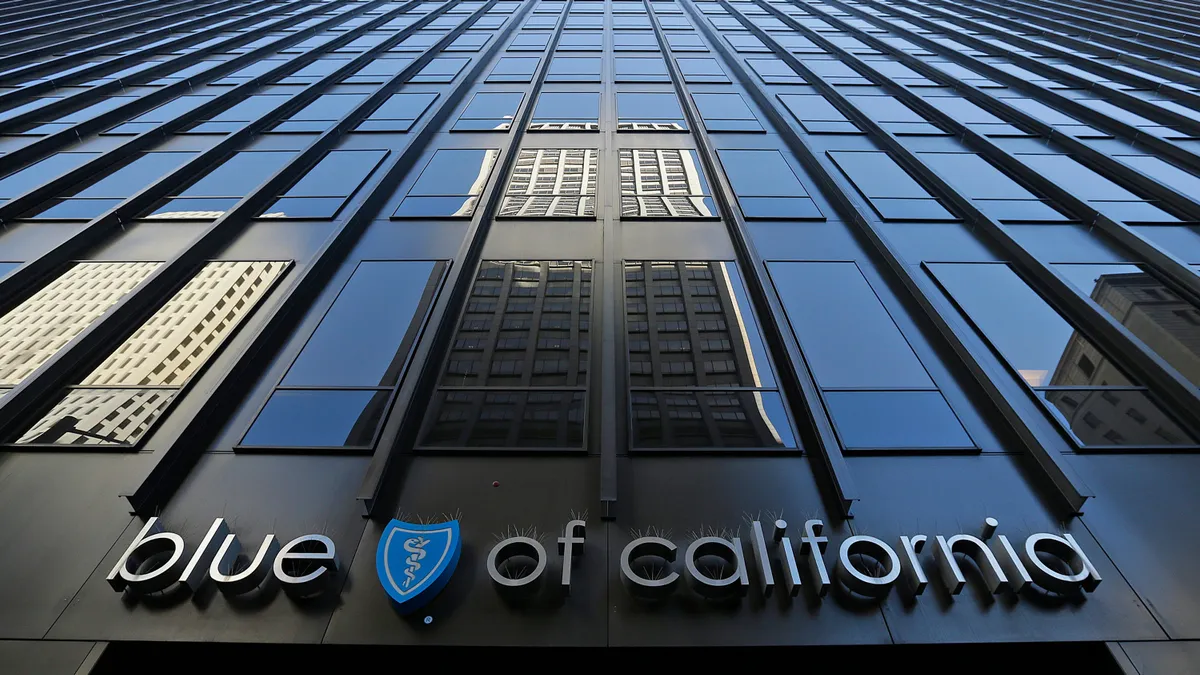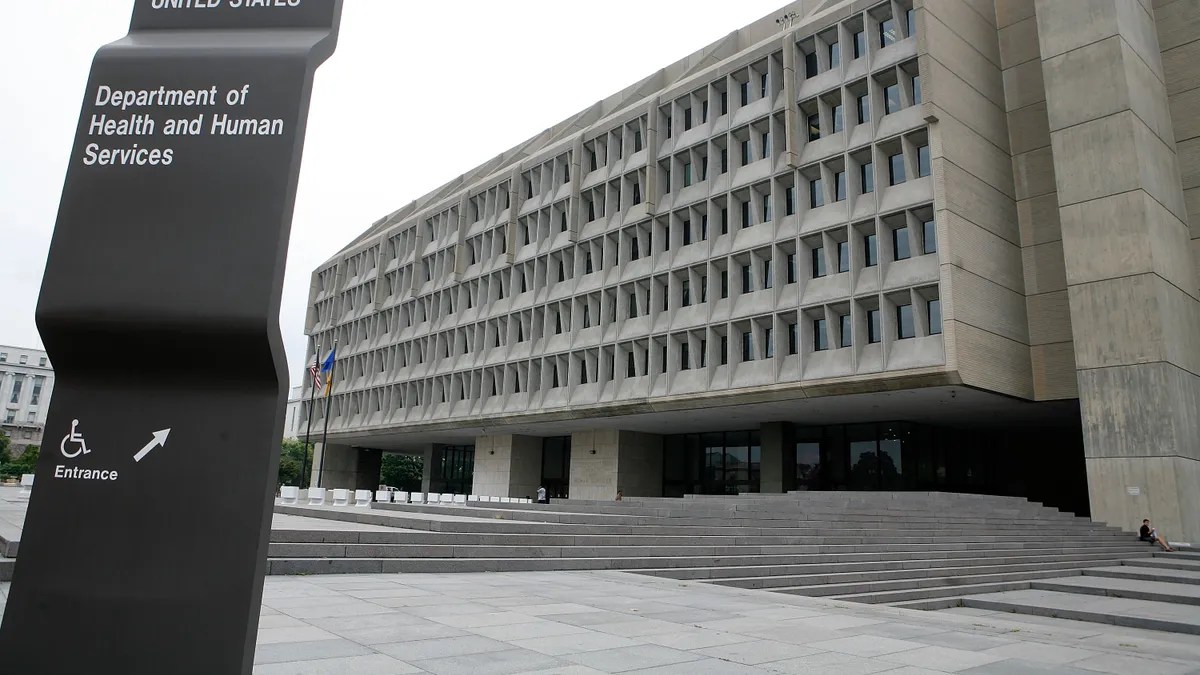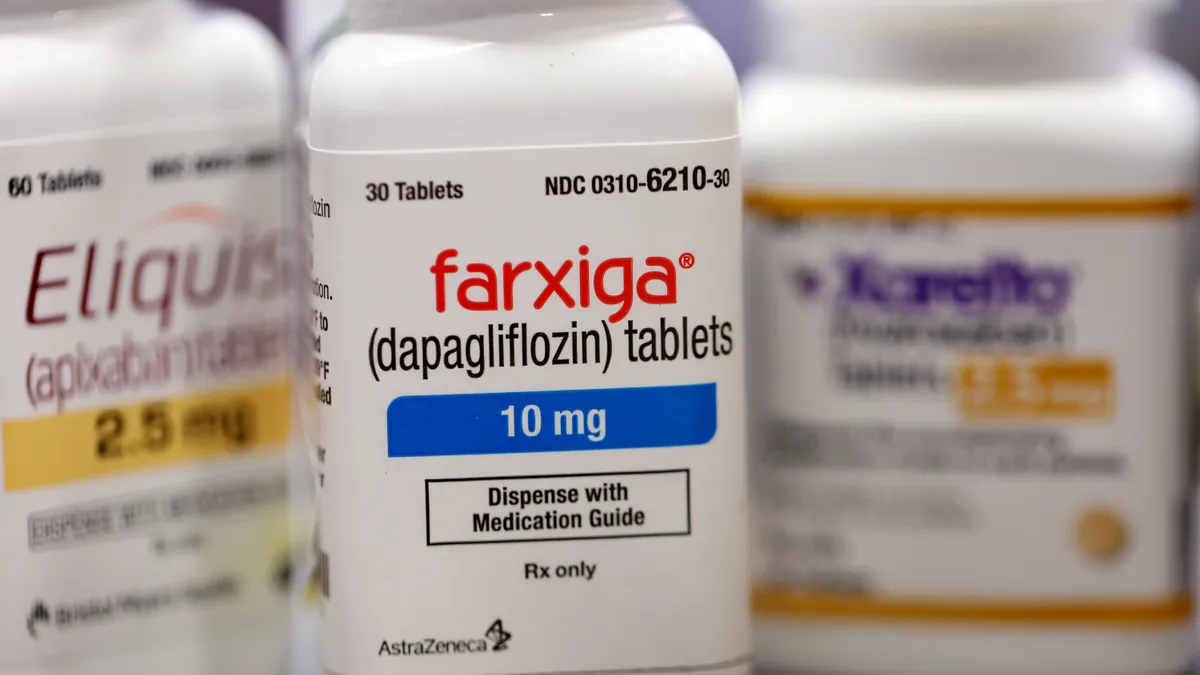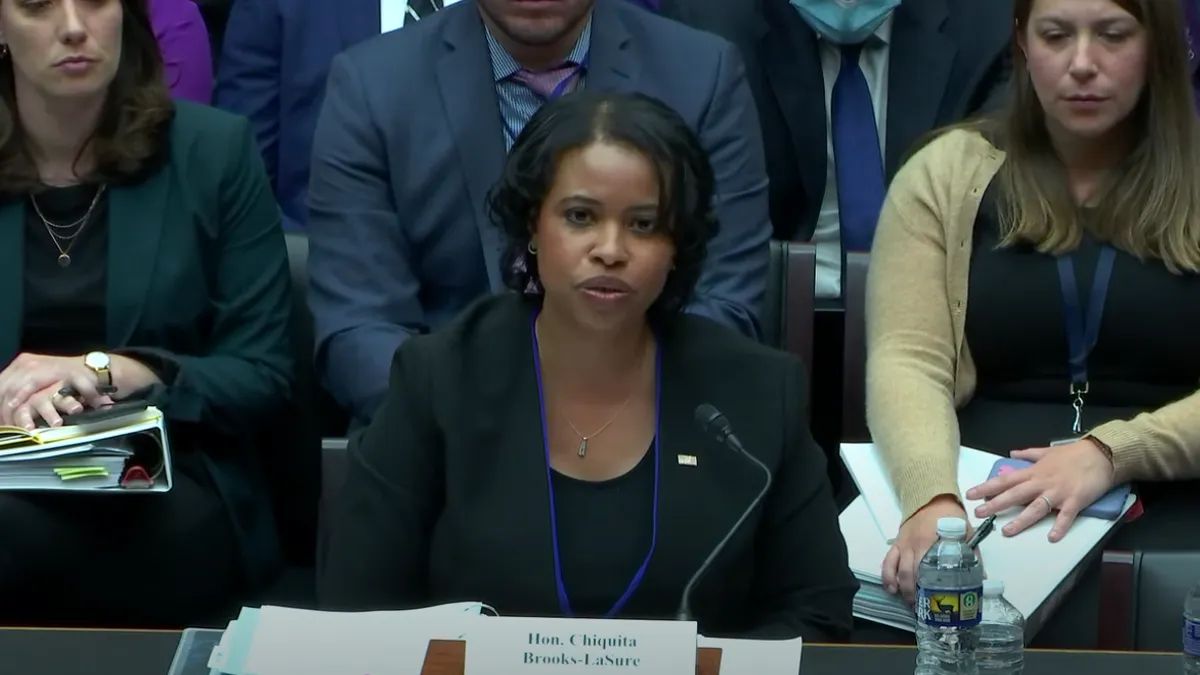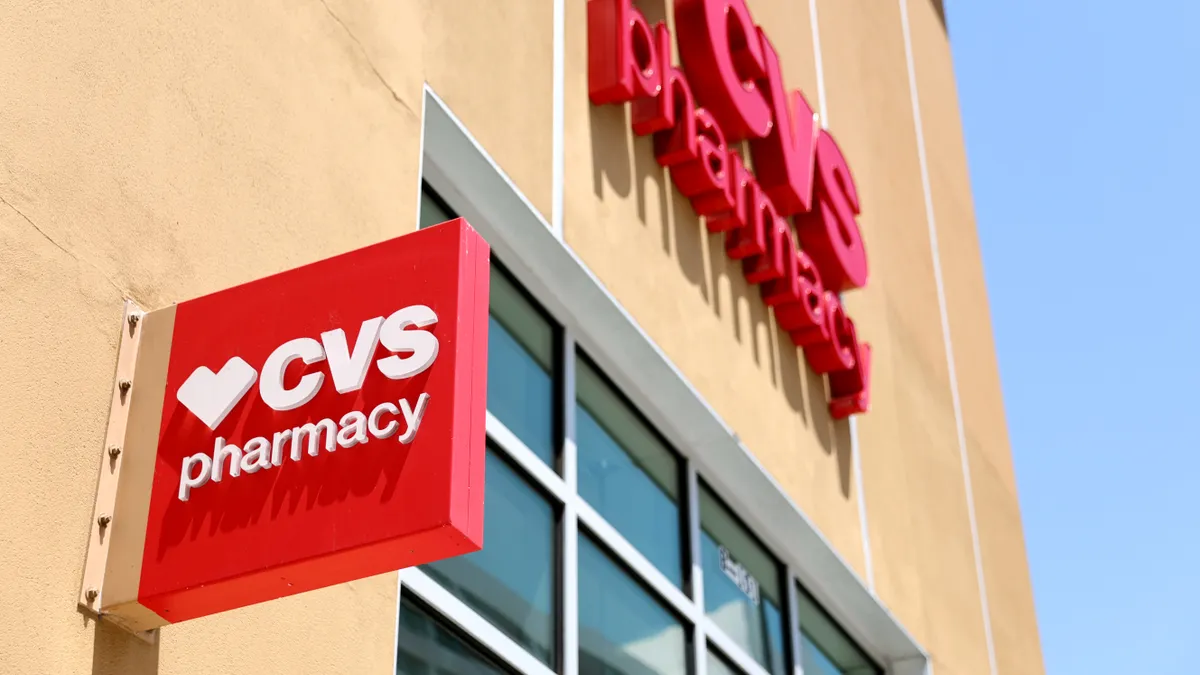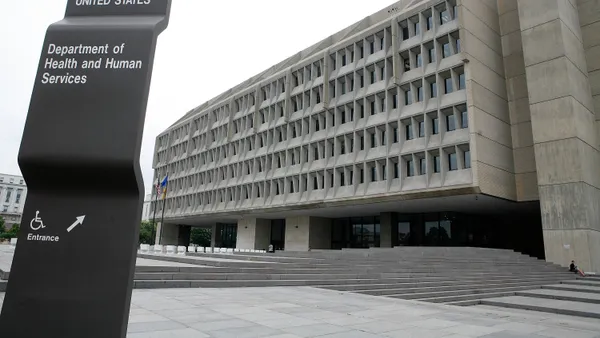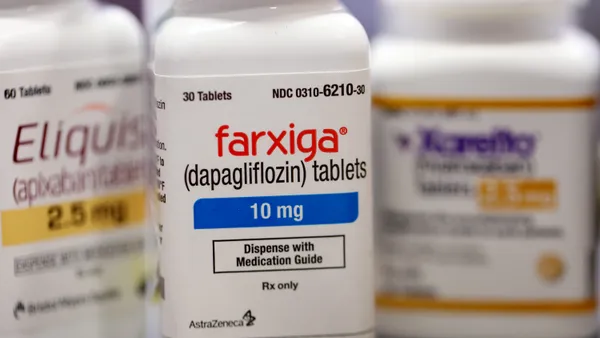Blue Shield of California wants to replace its middleman.
The health insurer, one of the largest in the nation’s most populous state, revealed in August it will drop CVS Caremark as the sole manager of its pharmacy benefits. In Caremark’s place, Blue Shield of California will contract out the job to five separate companies.
To those in the industry, it’s an audacious plan that cuts to the center of controversy over the role that pharmacy benefit managers like CVS play in the U.S. Blue Shield of California, or BSCA, expects to save $500 million a year from the move, calling it a “milestone” for a “broken prescription drug system.”
It’s still not clear whether BSCA can make the arrangement work, though. Big questions loom: Can the insurer coordinate pharmacy benefits across different vendors and actually generate meaningful savings? Will it lose employer clients along the way? How will other payers and PBMs react?
Investors seem to think BSCA has a chance. The insurer’s Aug. 17 announcement sent CVS’ shares sinking, along with the stocks of other major insurers that own PBMs.
But the market reaction — based on fears of more disruption in the PBM industry, already under heavy congressional and regulatory scrutiny — was overblown, industry experts say. A contracting experiment from a regional health plan, even one as large as BSCA, is unlikely to upend the ossified sector.
Still, BSCA’s willingness to make a risky bet shows payers’ growing appetite to take aggressive action to curb drug costs.
“It’s an interesting idea,” said Mike Fox, who worked as a managing director at insurance services company Willis Towers Watson for almost three decades. “But I think there’s pretty serious skepticism around how this is actually going to work and if they’re going to be able to generate savings.”
BSCA’s gamble
The largest PBMs, like Caremark, are a one-stop shop for managing prescription drug benefits. The companies create formularies of covered treatments, wield their purchasing power to negotiate rebates and discounts from drugmakers and contract with pharmacies to reimburse for medicines.
PBMs say they help lower drug prices and slow drug spending growth. But as middlemen between payers and drugmakers, PBMs are at the center of public ire over high drug costs.
To critics, PBMS favor high-cost drugs so they earn larger rebates and therefore reap higher profits. They have also been slammed for hidden fees, self-dealing and complex black box contracts that health insurers and employers say leave them in the dark.
BSCA is trying to wrest back some control. In its new arrangement, the payer is assuming direct oversight of pharmacy benefits by contracting with different vendors for various pharmacy services. Amazon will dispense non-specialty brand and generic medications to members’ homes. Mark Cuban Cost Plus Drug Company will help members get affordable prices for generic drugs at retail pharmacies, while midsize PBM Prime Therapeutics will negotiate rebates for all drugs in the pharmacy benefit.
Yet experts question whether it will add up to BSCA’s forecast $500 million in savings, which represents 15% of its annual drug costs, by a rough estimate.
It’s “difficult to figure out where that $500 million is coming from,” Fox said.
BSCA could generate higher rebates from drugmakers that pass through entirely to the plan, instead of Caremark retaining a cut. The payer could also see savings by pushing more drug dispensing to cheaper pharmacies through Amazon and Cost Plus, according to Jon Reid, president of benefits management consultancy ELK Strategies.
BSCA also took away mail-order dispensing from CVS, which is a “very big profit center” for any PBM, Reid said.
“Do I think there’s going to be savings? Yes. Do I think it’s going to be $500 million? Remains to be seen,” he added.
Savings in specialty?
Alison Lum, BSCA’s vice president of pharmacy services, told Healthcare Dive the insurer expects to generate savings in multiple ways.
While she declined to share detailed financial forecasts, she pointed to specialty drugs as one area where there’s opportunity to cut costs.
Specialty drugs are expensive prescription medicines for complex, chronic conditions that are only dispensed through specialized pharmacies. Less than 2% of the U.S. population takes specialty drugs, according to industry estimates, but the prescriptions account for more than 50% of total U.S. pharmacy spend.
“Do I think there’s going to be savings? Yes. Do I think it’s going to be $500 million? Remains to be seen.”

Jon Reid
President, ELK Strategies
BSCA did retain Caremark for specialty pharmacy dispensing, a decision that raised eyebrows given the arrangement’s goals.
That’s because specialty pharmacy is a major driver of revenue and profit for PBMs. CVS doesn’t publicly report prescription revenue from specialty drugs, but estimates from pharmaceutical industry research site Drug Channels put the company’s 2022 revenue from specialty drug dispensing at $61 billion.
That’s up 16% from an estimated $53 billion in 2021, outpacing CVS’ overall pharmacy services revenue growth of 11% over the same period.
Margins on specialty drugs can be equivalent to or lower than those of non-specialty medicines, but since their list price is so much higher, specialty drugs can result in profits of hundreds or even thousands of dollars per prescription. PBMs have been accused of directing this business to their own pharmacies, in what critics argue is a conflict of interest.
But BSCA’s specialty arrangement with CVS has changed, according to Lum.
“Our contract with them, as a result of the request for proposal we did last year, is going to be different than what we have in place today,” Lum said. “The specialty drugs they’re dispensing today — come 1/1/25 with the new contract, we’ll be paying for them differently.”
Lum declined to share details on how the new specialty dispensing contract differs. A representative for Caremark also declined to comment.
Redirecting generics
One key to savings could be how BSCA and Caremark define specialty drugs, experts said.
There are no clear criteria for what drugs are put on the specialty formulary. According to a report by data analysis firm 46Booklyn Research, the three biggest PBMs in the U.S. — Caremark, Cigna-owned Express Scripts and UnitedHealth-owned OptumRx — often don’t classify the same drugs as specialty. Sometimes, even low-cost generics can end up on specialty lists.
BSCA could have negotiated so that CVS is not allowed to dispense any specialty drugs that consumers can get through another channel like Cost Plus, according to ELK’s Reid.
“Most likely, they’re going to break up their formulary,” Reid said.
This could create significant savings. Per 46Brooklyn, 42% of the drugs on CVS’ high-priced specialty lists are generics. Of the specialty generics on CVS’ formulary, 71% could be filled at Cost Plus as of 2021, the nonprofit research firm found.
For example, a month’s supply of the generic version of multiple sclerosis drug Tecfidera is available for $39.50 at Cost Plus, compared to an average of $6,617 at other pharmacies, according to Cost Plus estimates. Despite the availability of generics for Tecfidera, major PBMs, including Caremark, were still directing the majority of their members to the more expensive branded drug in 2021, according to separate research from 46Brooklyn.
BSCA has turned to other vendors for generic purchasing in the past, Lum noted. The insurer is one of a handful of payers and hospitals to invest in Civica, a nonprofit that aims to make its own low-cost generic drugs.
In August last year, Civica launched abiraterone acetate, a generic for specialty prostate cancer drug Zytiga, at a price of $171 — about $3,000 less a month than the medication’s cost at the time, according to BSCA. CVS’ hesitancy to cover the generic partly drove BSCA’s decision to unbundle its pharmacy benefits, BSCA CEO Paul Markovich told Axios.
Both Zytiga and abiraterone acetate are now on CVS’ specialty formulary list for 2023.
“Our formulary strategy and benefits are services that Blue Shield currently performs today and will continue to perform in-house,” Lum said. “As we get closer to the launch of our new model ... we will be able to provide specific details as to our formulary and dispensing options.”
Experts said there were other reasons BSCA may want to retain CVS for specialty drugs, including negotiating power, disease management programs and continuity of care for members
Whatever BSCA’s specialty savings, CVS does not expect the contract change to impact its 2023 guidance or its long-term outlook, according to a regulatory filing after BSCA’s August announcement.
Analysts expect the unbundling to weigh on CVS earnings slightly in 2024 and 2025.
JP Morgan analyst Lisa Gill estimated in an August note that the BSCA contract was worth roughly $4 billion in total revenue for CVS and represented about 60 million prescriptions — roughly 3% of Caremark’s total volume.
While generic prescriptions outnumber those for specialty drugs, the latter make up an estimated one-third of the contract’s earnings potential, given higher margins on those drugs, Gill wrote.
Coincidentally, BSCA’s unbundling could benefit Caremark by shunting low-margin generics traffic to other vendors, according to Nathan Ray, a healthcare partner at consultancy West Monroe. Caremark will be responsible for dispensing for a small subset of BSCA members, but those members will be more profitable.
“A lot of the volume this may redirect is volume that CVS probably wasn’t making a ton of money on to begin with,” Ray said.
Corralling vendors
In shaking up its pharmacy benefit structure, BSCA is taking on a significant organizational endeavor that could risk its ability to reach forecast savings. Providing member services will be a particularly tough challenge, according to benefits experts.
As BSCA members adjust to the new arrangement, the payer’s customer services representatives are going to have to become experts in the benefits and systems of not just one company, but five.
“Can they manage that? And still keep customer satisfaction? Because if they can’t, that $500 million in savings may not mean anything, because now they’re going to have to go out and acquire new customers,” said ELK’s Reid.
BSCA plans to take an active management role, but is still working to build back-end processes and technology to connect its vendors to the payer and to each other, Lum said.
BSCA did not discuss specifics of the proposal with employer clients before the contracts were inked, because of the nature of the bid process, according to Lum. She said BSCA’s employers have reacted positively to the change, but want to know more details.
“My team is building all of this and working to do the implementation now. We want to get all the details to everybody, but we don’t have exactly all the details to share specific down to the employer group yet,” Lum said.
BSCA is rolling out the model among its employees for 2024, before extending it to clients as BSCA’s core pharmacy benefit offering starting January 2025.
The payer could see some defections before then, experts said, as employers are wary of sweeping benefits changes.
BSCA’s large self-insured employer clients are particularly likely to leave for a competitor if they’re not sold on the new pharmacy benefit, according to Fox.
“If I’m a company with 20,000 employees in the U.S. and 5,000 in California, and now I have to educate those 5,000 employees on a new prescription drug plan that might save me 1% of cost, I got other things to do,” Fox said.
BSCA’s largest client is the California Public Employees Retirement System, or CalPERS, which administers retirement benefits for state employees and represents about 133,400 of BSCA’s 4.8 million covered lives.
CalPERS declined to say whether it planned to stay with BSCA and adopt the new pharmacy arrangement come 2025.
“CalPERS supports innovative approaches to transform pharmacy care to increase transparency, affordability, and value,” Julia Logan, CalPERS chief clinical director, said in a statement.
Unbundling pharmacy arrangements is not a new idea. Most midsize PBMs contract with other companies to provide services they don’t have internally, like mail-order pharmacy or specialty dispensing. A number of health plans, hospitals and universities with clinical expertise have separated out one service or another, experts said.
"I’m not going to sit here and say that this is the easiest model in the world to put into the marketplace. It’s not."

Beth Hebert-Silvia
Health plans practice leader, PSG
For example, 16% of employers and health plans carved out the specialty drug benefit for 2023, while 14% contracted out utilization management, according to a report from consulting firm Pharmaceutical Strategies Group, or PSG.
Disaggregating comes with unique operational challenges, but the strategy has become more popular among plans looking to get aggressive on controlling drug costs, according to Beth Hebert-Silvia, health plans practice leader at PSG.
“I’m not going to sit here and say that this is the easiest model in the world to put into the marketplace. It’s not,” Hebert-Silvia said. “But it’s exciting to see a health plan go all the way.”
Plans that use one of the big three PBMs — Caremark, Express Scripts or OptumRx — are more likely to consider multiple contracts to administer different benefits, according to PSG research.
Satisfaction with traditional PBMs has reached its lowest point in nearly a decade, according to a separate PSG survey of employers, health plans and providers, as payers face the biggest annual increase in healthcare costs since 2012.
“Employers always have a bias towards keeping it simple — streamlining, using existing carriers,” said Michael Thompson, president and CEO of the National Alliance of Healthcare Purchaser Coalitions. “Having said that, this is an area that is woefully wanting. I think they should be open to entertaining these newer models.”
Chain of contracts
A final wrinkle in BSCA’s new model is how the payer’s relationship with Prime Therapeutics could potentially benefit health insurer — and BSCA competitor — Cigna. That’s because Cigna’s PBM Express Scripts has a yearslong partnership with Prime.
Experts said the possibility Express Scripts could benefit from the BSCA unbundling highlights the difficulty of cutting out the largest players in an industry where savings are often predicated on scale.
“Aggregation is a numbers game. The more lives you have, the more you can leverage for your contracts, and the more you can bring value to your client,” said ELK’s Reid. “I do believe this is a good thing for Express Scripts.”
Prime partnered with Express Scripts in 2019. Under the deal, Express Scripts handles rebate negotiations with drugmakers, along with retail pharmacy network contracting for most of Prime’s business.

Specifically, Prime sources formulary rebates via Ascent Health Services, the Switzerland-based group purchasing organization created by Express Scripts in 2019. Prime joined Ascent’s ownership later that year, though Express Scripts remains Ascent’s controlling owner.
Group purchasing organizations say they use their scale to negotiate steeper discounts on drugs. Still, the companies have been criticized for allowing PBMs to coordinate pricing and rebate schemes with competitors.
Ascent controls negotiations for 100 million covered lives in the U.S., according to the company.
“There’s obviously some opportunity to make sure that everyone gets some advantage from additional volume flowing through their contracting channels,” said West Monroe’s Ray.
The BSCA contract could also benefit Cigna’s health services arm Evernorth by expanding the pool of members for other value-based clinical programs where Prime contracts with Express Scripts, experts said.
Lum confirmed that Prime sources rebates through Ascent, but said Prime is “like-minded and aligned” with BSCA’s values and how the payer wants to pay for pharmacy care.
Both Prime and BSCA are affiliated with Blue Cross and Blue Shield, a federation of nonprofit health plans. BSCA is an independent member of the Blue Shield Association, while Prime is collectively owned by 19 Blue Cross and Blue Shield plans.
BSCA and Prime have said they plan to move toward a value-based pricing model that focuses on outcomes, though BSCA declined to share an exact timeline for that switch.
Both Cigna and BSCA directed questions on Prime’s rebate contracting arrangements to Prime. Prime directed questions to BSCA.
‘We can’t continue’
The ripple effects of BSCA’s new deal spotlight the complex web of relationships in U.S. healthcare, and how payers trying to lessen their reliance on one major PBM may end up benefiting another, experts said.
Reliable cost and outcomes data can take years to emerge following a benefits switch, so whether BSCA can deliver on its promise of a simpler and less expensive pharmacy benefit model won’t be clear for some time. If the insurer’s experiment is a success, other payers may choose to follow, experts said.
In the meantime, payers and plan sponsors will be watching closely, weighing drastic steps to drive down spending at a time when one in four adults taking drugs report difficulty affording their medication.
“For people who are skeptical, I would say, yeah. This is a complex industry,” said Lum. But “we can’t continue the way that we have been.”
Correction: This story has been updated with the number of CalPERS members covered by BSCA.



